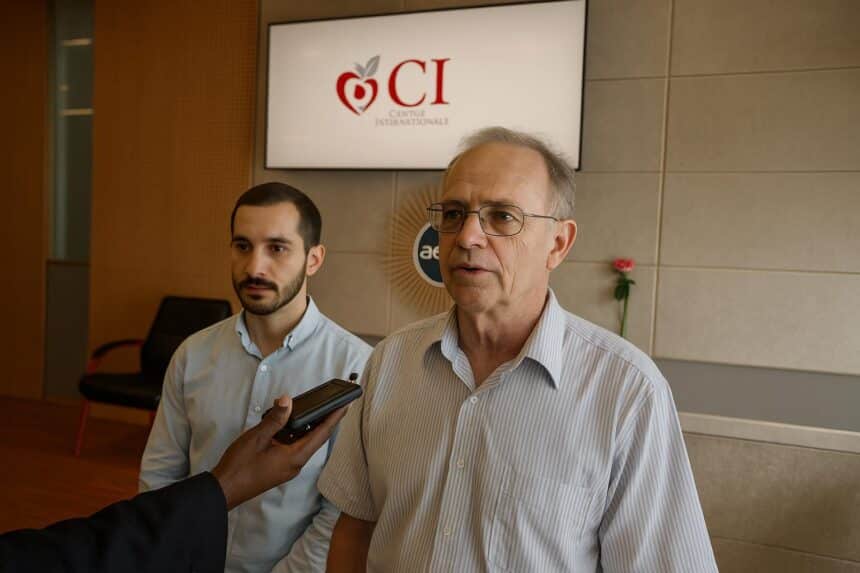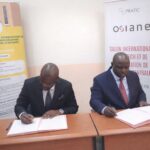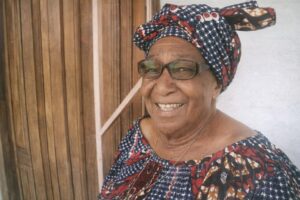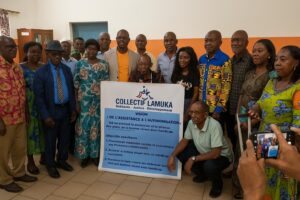Airport workers gather for health talk
A short walk from the tarmac, the conference room at Maya-Maya International Airport filled early on 14 October as Aerco, the airport operator, invited its teams to a public health talk focused on one silent adversary: lower back pain.
Specialists from Brazzaville’s Clinique Internationale, orthopaedic surgeon Dr Hassan Yasser and physiotherapist Dr Ali Issa, led the session, sharing practical advice tailored to staff who spend long hours standing at counters or lifting cargo in the belly of aircraft.
Daily strains that trigger lumbar pain
Lower back pain, the speakers warned, now ranks among the airport’s most common medical complaints, driving many consultations and occasional sick leaves that disrupt operations during peak travel moments, especially national holiday departures.
Behind the statistics lie repetitive gestures and awkward postures, Dr Yasser explained, picturing ground crews twisting to unload baggage, security agents frozen at scanners, and check-in staff bending toward screens that sit too low.
Such daily strains, he added, gradually inflame the lumbar discs and surrounding muscles, producing the stabbing or burning sensations many workers call simply la douleur du dos.
Simple moves for lasting relief
While painkillers bring short relief, lasting protection starts with posture, the surgeon insisted, urging staff to keep shoulders aligned above hips, shift weight frequently and avoid twisting while carrying loads.
Dr Issa then demonstrated simple airport-friendly exercises: gentle knee-to-chest stretches during flight boarding lulls, slow trunk rotations backstage, and discreet core-tightening breaths that can be done even inside an elevator.
He likened physiotherapy to routine aircraft maintenance: early intervention keeps the whole machine efficient, whereas neglect can ground a career just as surely as a hydraulic failure grounds a jet.
Beyond individual exercise, both doctors recommended small environmental tweaks that cost little: raising computer monitors to eye level, storing heavy luggage on waist-high shelves, and planning micro-pauses every forty minutes.
Preventive culture saves time and money
The clinicians reminded managers that prevention saves franc CFA as well as spines, since absenteeism, replacement training and potential compensation claims quickly outstrip the price of an adjustable chair.
Audience questions flowed, ranging from lifting techniques for oversized diplomatic trunks to the wisdom of wearing slimming belts during shifts. The specialists answered patiently, stressing that quick fixes can mask pain but seldom resolve underlying imbalance.
Outside the hall, Clinique Internationale set up a small booth offering posture assessments and discounted physiotherapy vouchers valid through the end of the year, an incentive many baggage handlers welcomed.
Dr Yasser told us the initiative fits the clinic’s broader mission to deliver integrated care to workers across Brazzaville, positioning the facility as a reference hub in Central Africa.
Clinique Internationale’s expanding services
Within its modern walls, patients already find paediatrics, dentistry, laboratory tests, psychology, speech therapy, dermatology, nutrition counselling, medical imaging, oncology and general practice, alongside the flagship physiotherapy and orthopaedics services highlighted during the airport talk.
A new operating theatre, scheduled to open in the coming months, will allow full orthopaedic surgeries on site, reducing the need for patients to travel abroad or wait for visiting missions, the surgeon confirmed.
Affordability remains central, he emphasised, noting flexible tariffs and existing agreements with insurance firms such as NSIA that cap out-of-pocket costs for policyholders. For uninsured clients, staggered payment plans can be arranged after social evaluation.
Next steps for Aerco wellness
Aerco’s human resources department hailed the session as a model for future collaborations, hinting at upcoming workshops on nutrition and stress management to round out the company’s wellness calendar.
Until then, the doctors left the audience with a grounded message: the spine is every worker’s runway; keep it clear, straight and well serviced, and each shift, like each flight, will take off smoothly.
Physiotherapy, or kinésithérapie in French, is defined by the specialists as a paramedical discipline devoted to restoring, maintaining or improving mobility, function and well-being through targeted movement and manual techniques.
It stands at the crossroads of rehabilitation, injury prevention, everyday health care and even physical conditioning, making it especially relevant to employees whose duties demand endurance and precision.
Several participants told our reporter they planned to share the stretching routines with relatives, noting that back pain spares no age group and often begins at school from slouching over notebooks.
Aerco spokesperson Mireille Loubaki acknowledged the demand and said management is studying a rotating roadshow model, combining health talks with brief first-aid refreshers and mental-wellness check-ins to build a holistic safety culture.
For workers like cargo handler Basile, who admitted missing family football games because of lingering back twinges, the promise of continued support sounded as welcome as a direct flight home after a double shift.
Clinique Internationale and Aerco closed the afternoon by distributing illustrated leaflets, each featuring QR codes that link to short tutorial videos so staff can review techniques on their smartphones before sunrise roster calls.






















